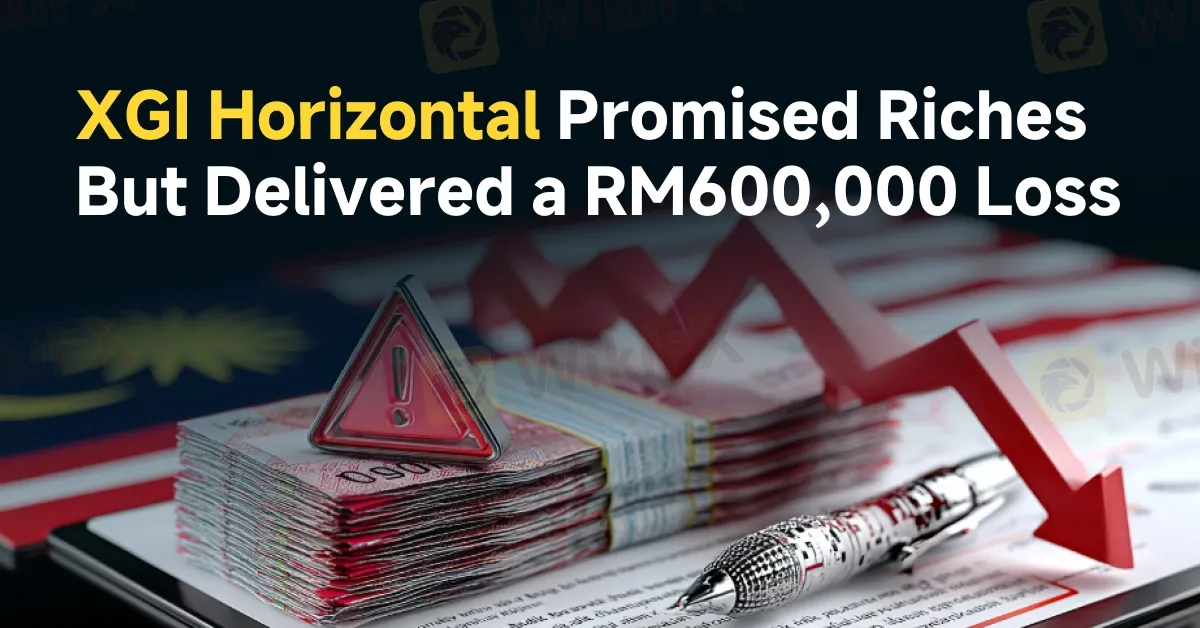简体中文
繁體中文
English
Pусский
日本語
ภาษาไทย
Tiếng Việt
Bahasa Indonesia
Español
हिन्दी
Filippiiniläinen
Français
Deutsch
Português
Türkçe
한국어
العربية
XGI Horizontal Promised Riches But Delivered a RM600,000 Loss
Abstract:A woman in her late 40s, working as a civil servant in Sibu, Sarawak, has lost more than RM600,000 to a fake investment scheme promoted through social media.

A woman in her late 40s, working as a civil servant in Sibu, Sarawak, has lost more than RM600,000 to a fake investment scheme promoted through social media.
The victim came across the investment offer on Facebook in early March 2025 while browsing at home. The scheme, run by a group calling itself “XGI Horizontal,” promised large profits in a short amount of time. Attracted by the offer, the woman began speaking to the person behind the ad through WhatsApp.
Over time, she made several bank transfers to the scammers account. In total, she sent around RM600,000, believing she would soon receive the high returns she was promised. However, the fraud only became clear when the scammer continued asking for more money, and she realised she had not received any of the promised profits.

Police said the woman then filed a report after understanding she had been tricked. Authorities have urged the public to be extra careful when dealing with investment opportunities, especially those advertised online or through social media platforms.
This case is one of many showing how fraudsters are using digital tools to target people with offers that sound too good to be true. These scams often appear professional and convincing, making it difficult for victims to see the warning signs.
To help prevent such losses, potential investors are advised to check the background of any investment platform before sending money. One tool that can help is WikiFX, a free mobile app available on Google Play and the App Store. It allows users to search for information about brokers, including their licence status, user reviews, and safety scores.

WikiFX gives users important details that can help them decide whether a platform is safe. It also warns people about risky or unlicensed investment services. With this kind of information, investors can protect themselves and avoid falling into scams.

Disclaimer:
The views in this article only represent the author's personal views, and do not constitute investment advice on this platform. This platform does not guarantee the accuracy, completeness and timeliness of the information in the article, and will not be liable for any loss caused by the use of or reliance on the information in the article.
Read more

5 Reasons: Microtrade Is a Red Alert
Is MicroTrade a scam or is it safe? This is a common question for many who are looking to invest or trade. Check out this article and you’ll see it is an investment scam

No License, No Security: CNMV Issues List of 10 Illegal Firms
Spain's financial watchdog, the National Securities Market Commission (Comisión Nacional del Mercado de Valores, CNMV), has issued warnings against 10 unlicensed forex brokers operating without proper authorization.

BaFin Issues Warnings Against Unauthorised Crypto and Investment Platforms
BaFin has recently flagged multiple websites, including stcwelt.com and mega-platz.pro, for offering financial and cryptoasset services without proper authorisation. Stay informed and protect your investments.

5 Serious Warnings About Mirrox! You Can’t Afford to Ignore
Pay Attention! This is a serious warning you shouldn't ignore. Check out this article and know the 5 red flags about the Mirrox that every trader must be aware of.
WikiFX Broker
Latest News
MT4 vs MT5: A comprehensive comparison in terms of functionality
Top Forex Trading Strategies for the London Session
Swissquote Takes Full Control of Yuh Digital Finance App in Major Deal
Top 5 Forex Pairs Every Trader Should Have on Their Radar
What WikiFX Found When It Looked Into Decode Global
Treasury yields rise as Trump's new tariff rates in focus
Know the Major Risks of UbitMarkets, Before You Invest!
Trump's tariffs overshadow the pomp and pageantry as Macron meets King Charles
Boeing delivers most airplanes since late 2023 after ramping up 737 Max output
Inflation expectations drift back down to pre-tariff levels, New York Fed survey shows
Currency Calculator


